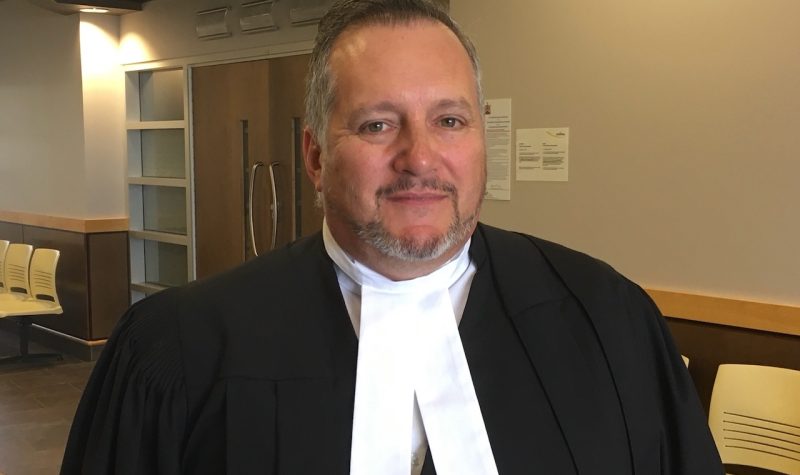Crown prosecutor Maurice Blanchard says that although there was no clear motive put forward in the convictions of Sean Patrick Patterson and Henry Pottie for their roles in the murder of Jamie Leard, he believes drug use was the underlying reason for the murder.
On Friday, September 15, Henry Pottie was sentenced to nine years in prison for his role in the murder of Jamie Leard, minus some time to account for time served in remand and time served in solitary confinement. Friday’s hearing was the final one regarding the tragic killing of 38-year-old Leard, who many remembered as a well-loved, quiet, and kind-hearted man.
On May 2, 2023, Pottie pled guilty to manslaughter, admitting to a role in the confrontation that ended in Sean Patrick Patterson shooting Leard on May 25, 2021. He also admitted to helping dispose of Leard’s body, concealing the crime, and misleading police and family members who were looking for Leard.
Pottie has been held in remand since he was arrested on June 5, 2021. He was placed in segregation several times since then, as a result of the court’s no contact order between himself and Leard’s convicted murderer, Patterson. The court typically credits time served before conviction at a rate of 1.5 days for each day served, and Crown and defense lawyers agreed to an additional credit of 45 days to account for the time Pottie spent in segregation. If he served the full sentence, Pottie would remain in prison until February 27, 2029, roughly seven years and nine months from the time of his arrest.
‘Senseless and needless tragedy’
Judge Robert Dysart called the murder of Leard “a senseless and needless tragedy,” and extended sympathy to the Leard family. Jamie’s mother Doris Leard and his uncle Michael Winter both submitted victim impact statements, but did not appear in court to read them. Doris Leard did appear at the sentencing hearing of Patterson in July, and read her statement then. Patterson pled guilty to second degree murder and was sentenced to 13 years before eligibility for parole.
“This crime has resulted in terrible loss, the loss of life of Jamie Leard, and the criminal conviction and significant incarceration of Henry Pottie,” Dysart told the court. “To the family and friends of Jamie Leard, I wish to express the court’s sympathy for your loss. No sentence imposed by the court will ever bring back to a loved one.”
Before the sentence was handed down, Dysart asked Pottie if he wanted to address the court. “I’d like to say sorry to the Leard family for all the pain and suffering I’ve caused to relatives, loved ones, friends,” said Pottie. “My actions will haunt me till the end of my days.“
In his decision on sentencing, Dysart noted that Pottie had a difficult upbringing and has struggled with addiction to illegal drugs on and off from a very young age.
No clear motive
No clear motive was ever put forward by prosecutors or defense attorneys to explain the killing of Jamie Leard, though the struggle to access illegal drugs was a recurring theme in testimony at Pottie’s trial.
After the hearing on Friday, Crown prosecutor Maurice Blanchard told CHMA that illegal drugs played a significant role. “We have a crystal meth epidemic in this area,” said Blanchard. “We have that throughout Canada, but in this area right now, it’s pretty bad. This drug is super strong. It’ll make people do things without any inhibitions, with no thought of any consequences and no morality. So I think the drugs had a major role here.”
Blanchard also acknowledged the remaining discrepancies in the versions of events given by Patterson and Pottie, and the other two partial witnesses at the scene. “It was one of those situations where all versions were different,” said Blanchard, “and we had to try and reconcile different versions together to figure out what happened.” Blanchard said that there was very little physical evidence used in the convictions. “At the end of the day, we relied a lot on upon the statements of the accused themselves,” he said. That added complexity and made the case more difficult for the family, he said, but in the end, “I hope justice was served.”


